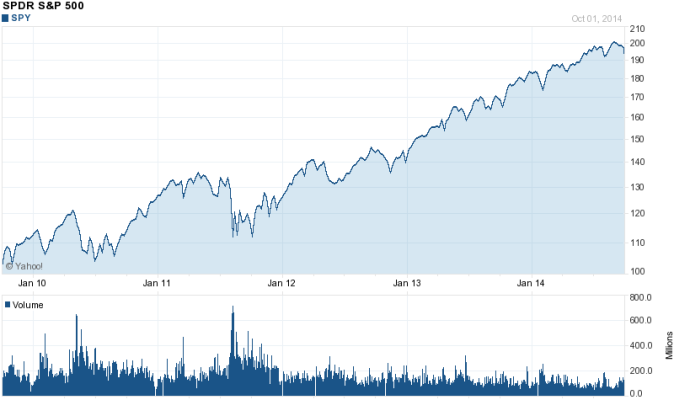haha
Give me a museum and I'll fill it. (Picasso) Give me a forum ...
These arguments do not appeal to me as arguments. Investing isn't a democratic process, I have no need to convince others to my position, as it really cannot affect my results. Still, at least 75% of discussions here are things in which we have no stake, like other people's personal lives. So random discussion has always been the meat and potatoes of the forumAn example of something I covered (or tried to, maybe I was unsuccessful in my communication) in the 'pet peeve' thread - a poster making a broad generalization about a group of people, esp when that broad generalization helps to defend their own narrative.
I'm pretty sure that the vast majority of B&H on this forum at least, are well aware of market risk. I don't know of anyone who 'scoffs at it'. There are a very few that I'm aware of, who are near 100% equities, and they seem to be well aware of the risks, yet still feel that they can ride them out and are likely to come out ahead, just as history indicates.
I am sure you realize that "history" does not really indicate anything. There isn't much of it, and one never throws a rock into the same water of the flowing river. I believe that the underlying premise of many or perhaps most retired buy and holders is that prices may go down, but they will necessarily come back. I would guess that many Japanese investors believed this in late 1989. It's 25 years and counting, and it still isn't back for them. Japan is not a small unimportant country.
Some of us were retired in 2000, more of us by 2008. But we are older now and attitudes change. All it would take is a big down draft that seems to shrug off Janet's rescue operations, and we will see a fair amount of panic, except among people that are greatly over-financed or have high cash flow relative to their needs. (Perhaps among those who can live well enough without periodic inflows from asset sales.) But anyone who follows the SWR idea does not fall into that camp, again unless they are greatly over-financed.
Personally I would own very little equity, if I wouldn't have large tax obligations on sales in my mostly taxable accounts. As it actually stands, I just hope that business conditions don't go to hell if there is a big down move, so that my holdings will continue to generate cash flow and dividends.
Ha
Last edited:

